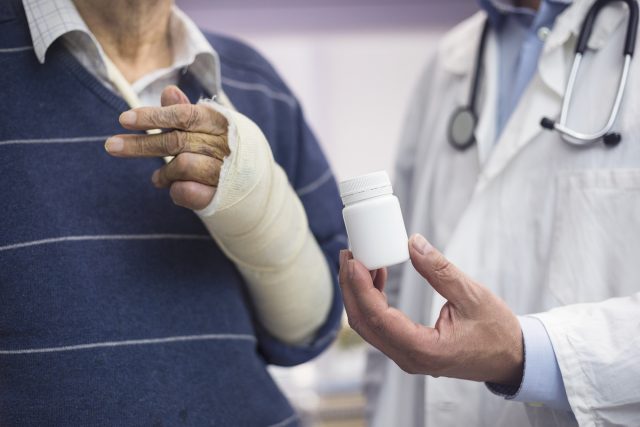
Women Get Less from Workers’ Comp
 Women receive less medical care for their health problems than men with the same conditions, research shows. And doctors are more likely to tell women their symptoms are emotional rather than physical.
Women receive less medical care for their health problems than men with the same conditions, research shows. And doctors are more likely to tell women their symptoms are emotional rather than physical.
Differential treatment for men and women also exists in another corner of the healthcare system: workers’ compensation claims.
Women injured on the job who are evaluated by female doctors are more likely to be determined to have an injury that qualifies them for workers’ comp benefits than when the doctors are men, according to Marika Cabral at the University of Texas at Austin and Marcus Dillender at Vanderbilt University.
Among the women whose injuries are under review, the evaluations performed by female doctors result in 9 percent more benefits than evaluations by male doctors.
In contrast, the likelihood of the men in the study receiving benefits and the dollar amount of their benefits are about the same regardless of whether their doctors are men or women.
The researchers said their findings are consistent with male doctors evaluating female patients against a stricter standard than male patients, while female doctors apply similar standards to all their patients.
The study used data from more than 70,000 cases in the Texas workers’ compensation system. When an independent evaluation of an injury is requested, the Texas Department of Insurance randomly assigns a doctor from a pool of eligible doctors to assess the worker’s degree of ongoing disability from the injury. The worker’s cash benefits are then based on this disability assessment.
Research into other government programs that use gatekeepers to approve benefits could also reveal whether the programs are fair to women, including federal disability benefits, SNAP food stamps, and Temporary Assistance for Needy Families.
If matching the gender of the applicants with their gatekeepers increases women’s access to social insurance benefits more broadly, the researchers said, then this practice may meaningfully affect the benefits women receive and can work to close the gender disparities.
To read this study, authored by Marika Cabral and Marcus Dillender, see “Gender Differences in Medical Evaluations: Evidence from Randomly Assigned Doctors.”
The research reported herein was derived in whole or in part from research activities performed pursuant to a grant from the U.S. Social Security Administration (SSA) funded as part of the Retirement and Disability Research Consortium. The opinions and conclusions expressed are solely those of the authors and do not represent the opinions or policy of SSA, any agency of the federal government, or Boston College. Neither the United States Government nor any agency thereof, nor any of their employees, make any warranty, express or implied, or assumes any legal liability or responsibility for the accuracy, completeness, or usefulness of the contents of this report. Reference herein to any specific commercial product, process or service by trade name, trademark, manufacturer, or otherwise does not necessarily constitute or imply endorsement, recommendation or favoring by the United States Government or any agency thereof.
Comments are closed.







This is a very unusual study. I hope that someday the situation will change and that gender differences will disappear, at least in these situations.